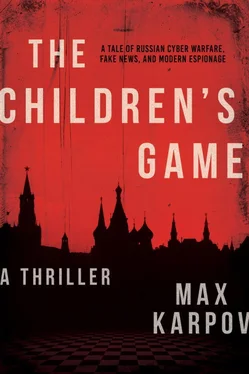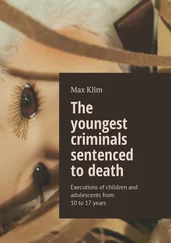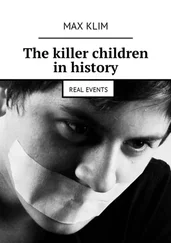Chris paid for the drinks and carried them down the concrete passageway to the beach, invigorated by the sea air and the anticipation of his talk with Anna. When he looked up again, he saw the white-haired man coming his way, stepping with a familiar urgency.
“Christopher? There you are. I almost didn’t recognize you with the glasses.”
“Martin? What the hell?” Their first confused impulse was to shake hands, but Chris’s were full and there was no place to set the drinks. “I hope you’re not going to say you came here looking for me.”
Martin flashed his old smile: thin-lipped and slightly reluctant, more pronounced on one side than the other.
“Let me deliver this, I’ll be right back,” Christopher said, handing Martin his drink and walking onto the sand with Anna’s.
Anna was sitting under the striped umbrella, reading the last pages of Eleni, the Greek novel she’d started two weeks ago to get in the mood for their trip.
“You’ll never guess who I just ran into,” Chris said.
“Should I?”
“Probably not.” She took the drink and gazed up at him, her dark blond hair beginning to dry in the heat. Anna had classical features—“standard,” she’d called them—but a slightly mischievous tilt of the head that wasn’t standard at all. “In the interest of time,” he said, “I’ll tell you: Martin Lindgren.”
“Oh.” Anna waited a moment before turning. She smiled at him and waved. Martin, on the edge of the sand, hesitated; then, as if on seven-second delay, his smile appeared and he waved back. “What in the world is Martin Lindgren doing here?”
“He hasn’t explained that yet. I have a feeling it’s not to see the archeological sites.”
Chris felt a tightening in his chest as he returned to the taverna. Martin’s appearance on this idyllic morning could only be a bad sign. Why would he have flown eight hours to see him without even calling first?
“I like her,” Martin said, nodding toward Anna as he handed over the drink. He led Chris onto the terrace, where he already had a table and a cup of coffee. There was a travel bag on one of the chairs, a Greek newspaper and rumpled copy of the Financial Times sticking out. “Sorry to do this unannounced,” he said as they sat.
“I’m surprised you found me. We were trying to stay under the radar. I guess you couldn’t phone or email first,” Chris added diplomatically.
Martin ducked his head to the side in that good-natured way he had, which always reminded him a little of Ronald Reagan. Martin had a handsome, angular face, dark blue eyes, and the elegant gestures of an earlier time.
“I could have, I suppose. But I needed to do this face to face. You’re not scheduled to return until the end of the week. This, unfortunately, can’t wait.”
“Okay,” Chris said. During his time as a CIA officer, he had worked several times for Martin, who ran a small independent branch of the Central Intelligence Agency known as the AS Division. His office gathered human intelligence, prepared analyses, and carried out small-scale black ops, mostly using private contractors. Where there was consensus on an issue in the intelligence community, Martin’s branch looked for alternate scenarios; hence its initials. AS Division was born out of the new emphasis at Langley on so-called “anticipatory intelligence,” although the weight the division carried these days wasn’t great. Chris, who’d left the government two and a half years ago, still moonlighted occasionally for AS.
“Something’s going on and I need to enlist your help,” Martin said. “Something with Russia. Very time sensitive. If you’ll hear me out.” He paused as the waitress came over to top off his coffee. Martin thanked her in Greek. Chris observed the clean, square cut of Martin’s fingernails as he reached for the cup.
“Something involving—?”
“We don’t know. That’s the problem.” Martin set down his cup. “All sorts of stories are circulating. Some you’ve no doubt heard.”
“I’ve heard the saber-rattling.”
“Well, yes. But more than that.” Martin drew in a long breath, his version of sighing. Since leaving Moscow three years ago, Chris had followed the same stories as everyone else: Russia’s announcements of new weapons programs, exercises with nuclear-capable Iskander missiles in the Baltics, violations of US airspace off the coasts of California and Alaska; behavior calculated to test the limits of NATO and the US. “They’re running exercises right now—today—in the Baltics with forty thousand troops,” Martin said. “But there’s also chatter about something less orthodox. Including sponsorship of terror strikes within our borders.”
“Russia wouldn’t be involved in anything like that,” Chris said.
“No. Probably not.” Martin had an odd habit of periodically closing his eyes and nodding as if to a private conversation, revealing reptilian-like eyelids. “Actually, I think they’re planning something else entirely,” he said, “something that we’re not even considering.”
“Why do you think that?”
Martin leaned forward and made a quick scan of the terrace. “Two reasons,” he said. “We’ve had some intel about a movement of dark money from St. Petersburg through a BVI company. Not a lot, nothing particularly out of the ordinary by Russian standards. Except that one of the accounts involved the Alkaev Group.”
“Oh.” Chris felt the outside world close in momentarily: the Greek music, the voices and silverware from the kitchen became muted, as if he’d gone underwater. “That’s different.”
“Yes.” And at last he understood why Martin had come all this way. The Alkaev Group wasn’t just Russia, it was Andrei Turov. Alkaev was one of the offshore companies Turov had set up to support illegal activities benefiting the Kremlin; more specifically, activities meant to infiltrate and undermine the United States. Turov was a master of perception warfare, who’d engineered high-production-value disinformation campaigns that the US couldn’t match. And often couldn’t see.
Chris had learned of Alkaev four years ago, while stationed at the American embassy in Moscow; he’d written an analysis warning of Turov’s plans to broaden Russia’s sphere of influence by weakening other nations. But because he’d never determined the group’s specific long-term strategy, Washington had taken no action—or seemed particularly interested. It was not in step with the US intelligence agenda at the time. The consensus then was that Russia had become so diminished economically that it no longer posed a threat, and that Putin, despite his much-publicized bravado, was largely irrelevant as a player on the world stage. This was before Crimea. Before Iran. Before the proxy war in Syria. Before Russia’s political influence campaigns in Hungary, Germany, France, and the United States. In fact, Russia’s diminished economy was exactly why the US should be concerned, Chris believed. Declining nations are sometimes the most dangerous kind.
“What does Langley think? And the White House?”
“They’re still no more keen on Turov than before. He’s so far off the radar he managed to avoid the sanctions list,” Martin said. “That’s why I need your help. The IC knows how to deal with Russia. But not Turov. They never have.”
Christopher gazed at the sea, recalling the unfortunate outcome of his last tour of Moscow. He sipped his drink, reminding himself that this was Andrei Turov’s genius: his ability to make himself a man no one—least of all, it seemed, the CIA—took very seriously. He’d structured his projects so they used a handful of operatives who kept their dealings nearly impossible to track. Chris’s report had quoted a former Russian parliament member calling Turov “probably the most devious and dangerous man in Russia.” He might’ve just said “in the world.”
Читать дальше












